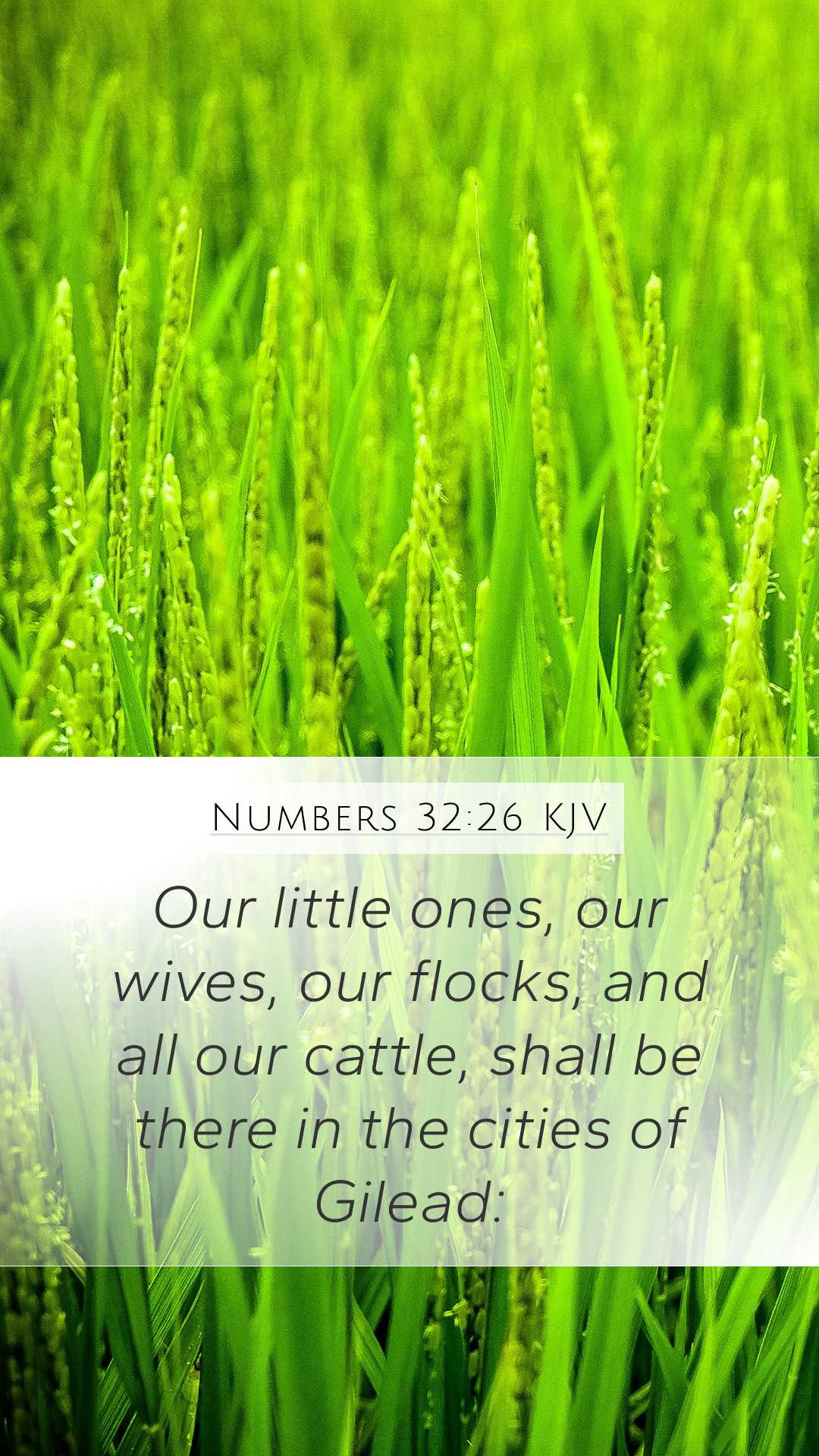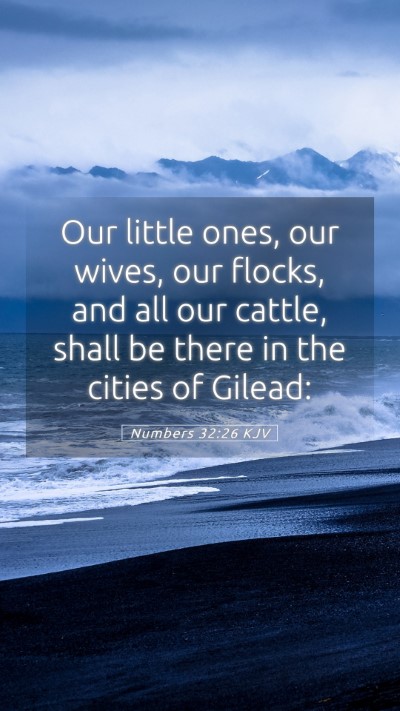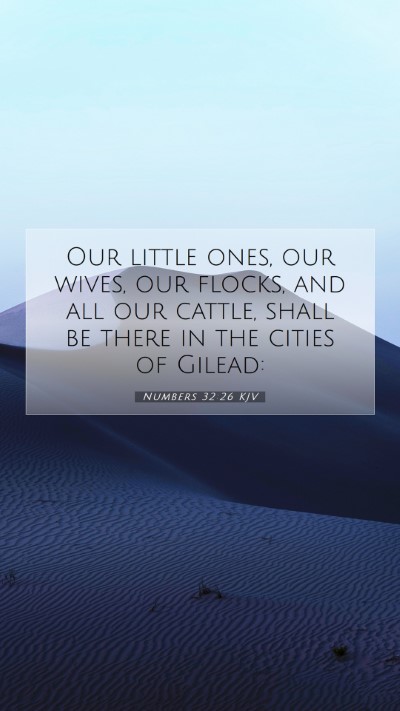Understanding Numbers 32:26 - Bible Verse Meaning and Interpretation
Numbers 32:26 reads: "Our wives, our little ones, and our cattle shall be there in the cities of Gilead." This passage reflects the thoughts and concerns of the tribes of Reuben and Gad as they negotiate their inheritance in the Promised Land. Below is a comprehensive analysis of this verse derived from various public domain commentaries.
Contextual Overview
The verses leading up to Numbers 32:26 show the tribes of Reuben and Gad expressing their desire to settle in the land of Gilead rather than crossing into Canaan. Their reasoning stems from the land’s potential for livestock, which was crucial for their prosperity as shepherds. This action signifies a pivotal moment in Israel's history as they approach the promised land.
Insights from Commentary
-
Matthew Henry:
Henry emphasizes the significance of the decision made by the tribes of Reuben and Gad. He suggests that their choice highlights a division among the Israelites, where some sought immediate comfort and prosperity over collective obedience and conquest of the promised land. He warns against the danger of prioritizing personal interests that may disrupt communal unity and spiritual commitment.
-
Albert Barnes:
Barnes provides an exposition on the practical considerations underlying this request. He notes that the tribes argued for their families' safety and the welfare of their livestock. This request reflects their immediate concerns but can also be seen as a lack of faith in God's promise to lead them into Canaan. Barnes encourages an understanding of the balance between practicality and faithfulness to God’s commands.
-
Adam Clarke:
Clarke's commentary points out the sociological aspects of the tribes' choice. He mentions the need for a strong foundation for their future generations and the security of their families. However, Clarke highlights that a lack of faith in God's promise can lead to spiritual consequences, emphasizing that while caring for family is important, it should not come at the expense of fulfilling God’s will.
Theological Implications
This verse offers rich theological insight regarding the balance between worldly concerns and spiritual commitments. It raises important questions about:
- Prioritizing earthly security over divine promise.
- The nature of commitment to God’s collective purpose versus personal desires.
- The ongoing challenge of maintaining faith in God’s plan amid practical considerations.
Application to Daily Life
The application of Numbers 32:26 in today’s context can be profound. It reminds believers of the importance of seeking God's will over their preferences, particularly when faced with decisions that could impact their community. Christians are encouraged to reflect on the following:
- How do personal desires influence decisions in our lives and communities?
- Are we ensuring that our choices are aligned with God's greater plan for us and others?
- What assurance can we take from God's promises when making significant life choices?
Cross References
To further deepen the understanding of Numbers 32:26, consider the following related Bible verses:
- Joshua 1:14-15 – Discusses the condition of helping fellow Israelites before settling.
- Deuteronomy 3:18 – Provides context for the request of land for livestock.
- Hebrews 11:9-10 – Explores the faith of Abraham and the promise of a better home.
Conclusion
In summary, Numbers 32:26 offers valuable lessons and prompts reflection on the complexities of faith and practicality. It encapsulates the essence of making choices that not only serve personal interests but also honor God's promises and foster unity within the community. As such, this verse serves as a rich source for Bible verse meanings, interpretations, and deeper spiritual understanding.


